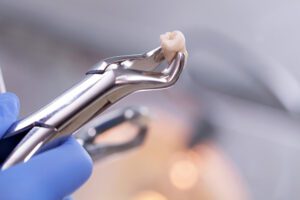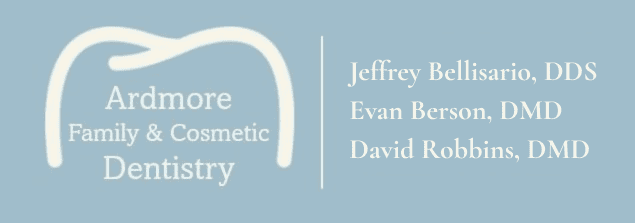Getting a tooth pulled can be a nerve-wracking procedure, but most patients experience some form of extraction in their life. Wisdom teeth are the most commonly pulled teeth, but you may need treatment for damaged and decayed teeth as well. After getting a tooth extraction in Ardmore, PA, it’s crucial that you take care of your oral health to prevent further damage. While the first 24 hours are the most crucial for aftercare, you’ll need to keep an eye on the extraction site for a few days until healing is complete.

Aftercare for a Tooth Extraction in Ardmore, PA
For the first 24 hours after an extraction, it’s important to avoid activities that could prevent blood clots. Clotting is our body’s natural way of healing. If your extraction site fails to clot properly, you could end up with a dry socket that leads to further complications.
Avoid Smoking or Drinking Through a Straw
Sucking motions, such as drinking through a straw or smoking, can be extremely hazardous after an extraction. The force of sucking can cause a forming blood clot to dislodge. This can reduce healing and cause problems with your extraction site. With proper care, a blood clot will usually form within 24 hours. But it’s often a good idea to avoid smoking and drinking through a straw for at least two or three days to ensure the site can heal properly.
Use Pain Medications and Cold Compresses
After extraction, it’s natural to experience some pain and swelling. Your dentist will use a local anesthetic during the procedure to help manage pain and discomfort, but it should wear off after a few hours. In most cases, over-the-counter pain medications can help. However, avoid using pain medications that also act as blood thinners. This can make it harder for a blood clot to form. A cold compress can also help reduce swelling and manage pain.
Rinse With Warm Saltwater
After the first 24 hours, you should resume gently brushing and flossing around the extraction site. However, too much pressure or rubbing could cause complications with the healing process. You can gently rinse your mouth using warm salt water to help keep the extraction site clean and healthy.
Avoid Direct Chewing
Whenever possible, avoid chewing direction on the extraction site. If you’ve had multiple extractions at once, this can be difficult. Try to stick to a soft diet to help reduce pressure and the chances of damage to your socket. If eating harder foods, cutting them up into smaller pieces could make it easier to manage where you chew.
If you have excessive damage, decay, or crowding, a tooth extraction may be able to help protect your oral health. Call our office today at (610) 839-8967 to schedule a consultation and see if an extraction is right for you.
